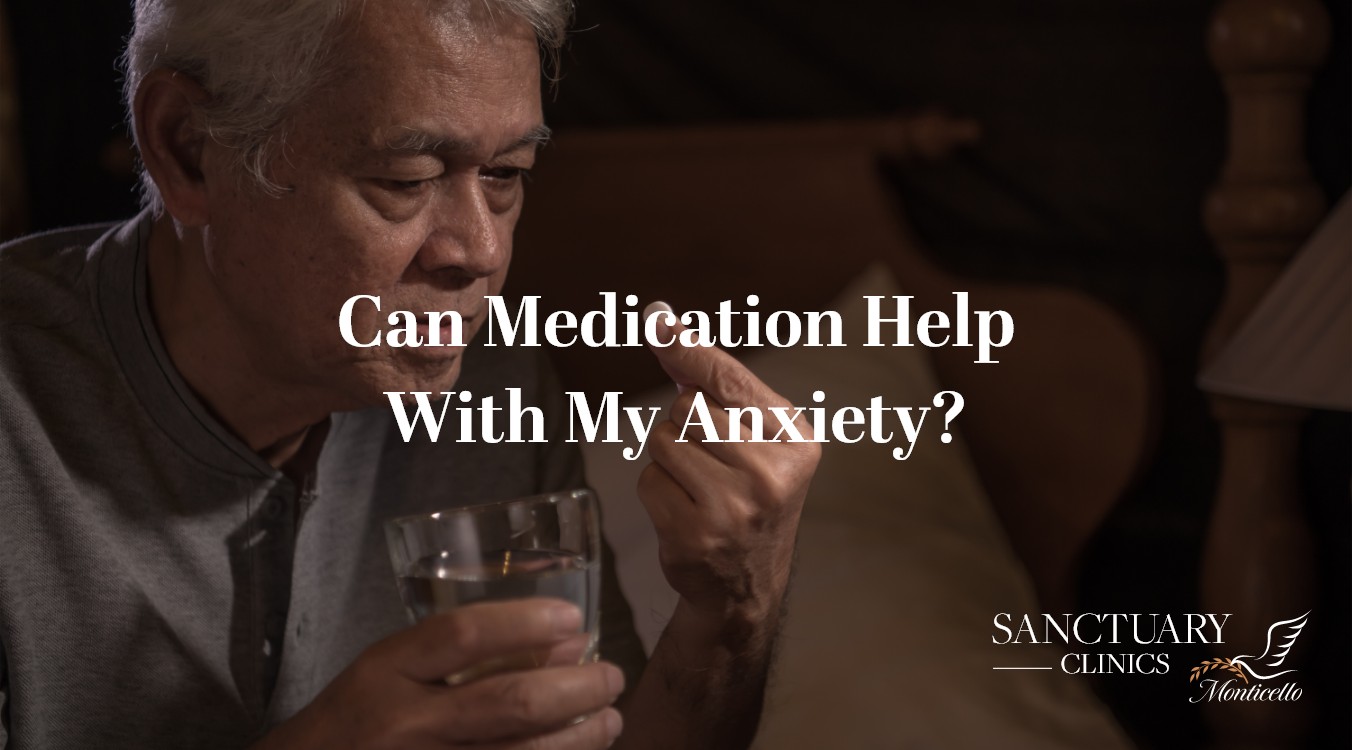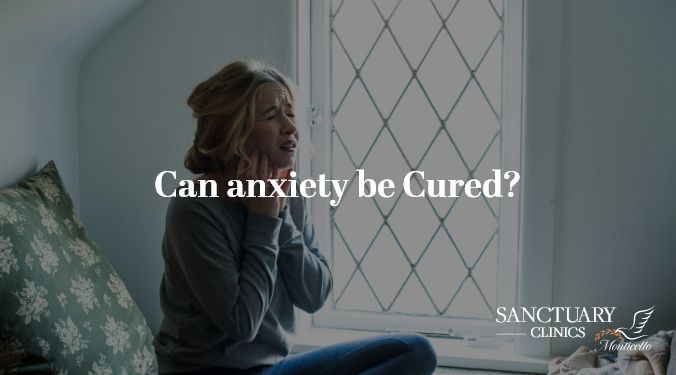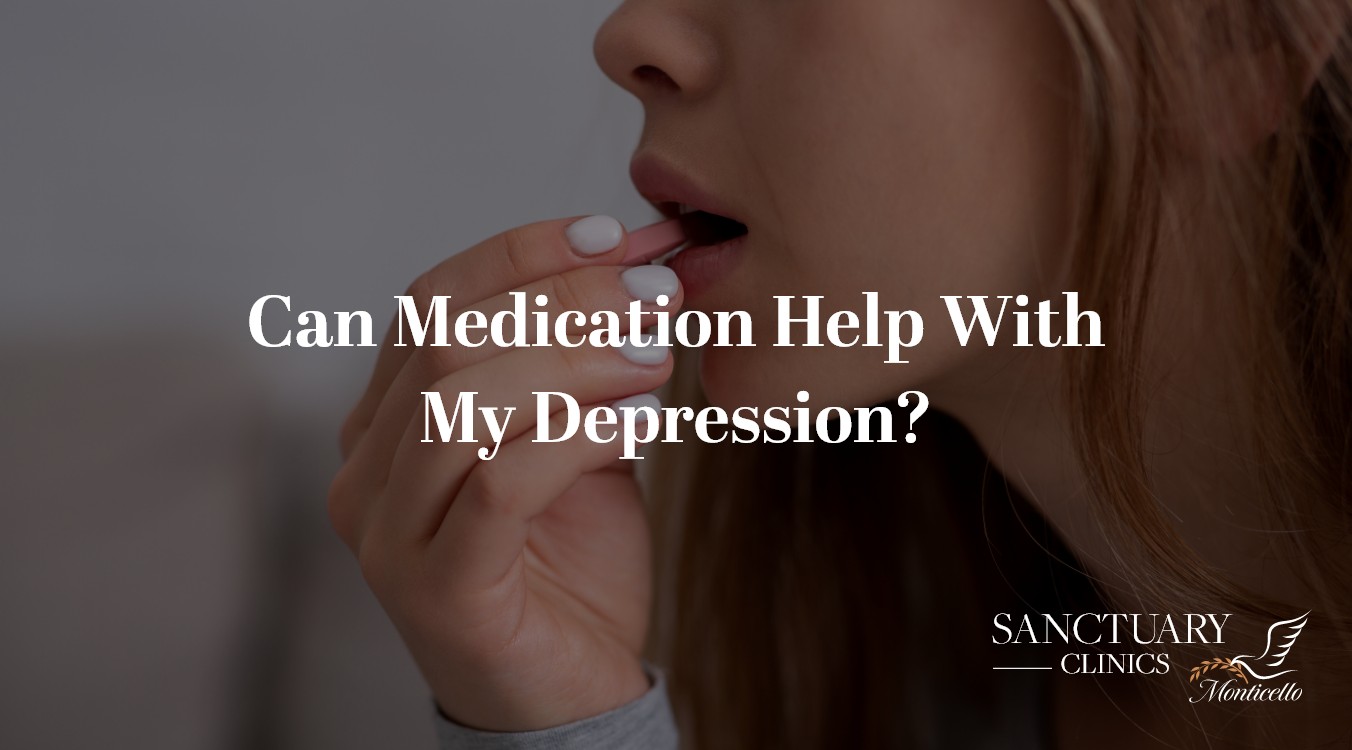Anxiety is a crippling mental health disorder experienced among many people around the world. You can feel helpless, your heartbeat can increase, you can be in fight or flight mode, your hands can be sweaty, you can be shaking, and you can be experiencing sleepless nights. It can all be so overwhelming.
Medication can help with anxiety and make the reduce the symptoms. It is important to clearly diagnose the type of anxiety before prescribing the anti anxiety medication. However, medication for anxiety may not be right for everyone and may not be the only answer.
Different types of anxiety disorders
Anxiety can get in the way of a person’s daily life. Generalized Anxiety Disorder (GAD) is a common disorder which is characterized by consistent, excessive worries which are difficult to control or stop. GAD affects about 6.8 million Americans. Women are more prone to it.
Other forms of anxiety include panic disorder, social anxiety, phobias, obsessive compulsive disorder, separation anxiety, and post-traumatic stress disorder. Let’s get into what you may need to know when considering medication to help your anxiety.
Types of anxiety medication
Antidepressants and benzodiazepines are the most commonly prescribed medications for treatment of anxiety.
Antidepressants
Antidepressants are used to treat depression but they can also aid with the treatment of symptoms of anxiety disorders. They are often a first choice anxiety treatment option. Particularly, the selective serotonin reuptake inhibitors (SSRIs) are widely used to treat and prevent a variety of anxiety disorders.
Examples of SSRIs used to treat chronic anxiety:
- Citalopram (Celexa)
- Escitalopram (Lexapro)
- Fluoxetine (Prozac)
- Paroxetine (Paxil)
- Sertraline (Zoloft)
Aside from SSRIs, there are also SNRI’s (Serotonin norepinephrine reuptake inhibitors) which are also used to treat anxiety.
Examples are:
- Duloxetine (Cymbalta)
- Venlafaxine ER (Effexor XR)
Benzodiazepines
These are famous anti-anxiety drugs which help treat panic attacks, worrying, or fear. Benzodiazepines work by slowing down the nervous system, assisting you to relax both physically and mentally. They are quick to work but are only meant to be used over a short period of time to lower the risk of side effects.
Examples include:
- Alprazolam (Xanax)
- Clonazepam (Klonopin)
- Lorazepam (Ativan)
Other treatments
Apart from antidepressants and benzodiazepines, there is also Buspirone (Buspar) which is an anti anxiety medication which may be helpful for people who have long- term chronic anxiety.
Hydroxyzine pamoate (Vistaril) is a potential second choice treatment for Generalized anxiety disorder (GAD) and may also be prescribed for people who don’t respond well to benzodiazepines, or who have struggled in the past with substance abuse.
Finally, beta-blockers like Propranolol (Inderal) are used to help with performance anxiety, which includes symptoms such as shaking, and a fast heartbeat before speaking in public.
Are there any side effects to the medications?
Some common side-effects of SSRI or SNRI antidepressants may include:
- Weight gain
- Low sex drive or Erectile Dysfunction (ED)
- Nausea
- Dizziness
- Headache
- Insomnia
Common side-effects of benzodiazepines include:
- Diarrhoea
- Tiredness
- Confusion
- Headache
- Nausea
- Poor balance or coordination
- Memory problems
- Trouble concentrating
- Blurred Vision
Beta blockers side-effects include:
- Fatigue
- Weakness
- Constipation
- Nausea
- Sleepiness
- Dizziness
- Diarrhea
How serious are the side-effects of benzodiazepines?
Out of all the prescribed medication, benzodiazepines have the highest risk of side-effects. It is quite possible to be dependent on them and even build up a tolerance to them. As time goes by, you may need higher doses to experience the same effects.
Severe withdrawal symptoms such as increased anxiety, stomach pain, pounding heart, seizures, and restlessness can develop if the medication is abruptly stopped after being used for a period of time.
Many people think withdrawal symptoms are a return of their original anxiety condition, causing them to think they need to restart their medication.
A recommended way to avoid withdrawal symptoms is by gradually lowering your dose. A healthcare professional can assist with this, but because of these possible side-effects, they are often not the first choice medications.
Can these medications cure my anxiety?
Anxiety medications are not guaranteed to cure anxiety. These medications are formulated to control and reduce the symptoms so you can go about your daily life, but they don’t necessarily cure anxiety. The doctor or mental health professional may also advise talk therapy to help reduce anxiety along with any ongoing drug treatment.
Do I have to take this medication for the rest of my life?
This depends on your symptoms and how they are managed over time. Antidepressants usually take a few weeks before symptoms improve, as mentioned above. It is recommended they are taken for at least a year, especially if you’re benefiting from the drugs.
The reason for this is to prevent symptoms from getting worse. Afterwards, you and your doctor may decide whether you will continue the drugs or stop their usage by tapering them down.
How long does it take for the medication to start working?
The time frame may vary depending on the drug. It may take around 2-6 weeks to start working. Benzodiazepines work faster and a person may feel improvements soon after taking them.
Can I drink alcohol with my medication?
The risks vary depending on the drugs. It is generally advised you do not drink alcohol while on antidepressants or benzodiazepines. If you still intend to drink, you should speak with your doctor or your mental health professional.
Can vitamins and supplements help treat my anxiety disorder?
There isn’t evidence on the effectiveness of vitamins in the treatment of anxiety disorders. A lot of vitamins could potentially get in the way of the anxiety medications. However, if you want to use vitamins, it is advised you consult with a pharmacist or a doctor first.
This is because some vitamins may have side-effects when mixed together with prescription drugs.
Can anxiety medications cause long-term effects on my brain and personality?
Benzodiazepines are likely to cause a change in the Central Nervous System (CNS), which includes the brain and spinal cord. However there hasn’t been concrete evidence or studies to prove this. The same goes for the antidepressants.
While most medications don’t cause long-term changes to brain function, people with anxiety may experience physical changes in the brain. This can affect how they respond to normal situations and their ability to process emotions.
Is there an alternative to medication?
Yes! Besides medication, therapy and lifestyle changes could be great ways to help manage anxiety.
Cognitive behavioural therapy (CBT) focuses on working with a person who experiences anxiety. It teaches specific ways to approach fear and social situations. This may include different relaxation exercises to practice at home.
Lifestyle changes can include lowering your caffeine, nicotine, or alcohol intake. Caffeine, nicotine, and alcohol can cause or raise your level of anxiety. It is advised to lower your intake or to stop consuming them altogether.
Exercise is also a great way to keep your body active and get rid of the hormone that causes stress (cortisol).
Some questions to ask yourself before considering anti-anxiety or antidepressant medication
If you are considering whether or not to take anxiety medication, it is important to think about the advantages and disadvantages of the medication. It is also crucial you learn about the side-effects, because some are mild while others are more severe in the problems they cause. Ask yourself these questions.
- What non-drug treatments for anxiety might help?
- Is medication the best option for my anxiety problem?
- Am I willing to put up with unpleasant side-effects in return for anxiety relief?
- Do I have the time and willingness to pursue non-drug treatments such as cognitive behavioral therapy?
- If I decide to take medication, should I pursue therapy as well?
- What self-help strategies might help me get my anxiety under control?
- Is anxiety really my problem? Or is something else going on, such as an underlying health condition or pain for example?
Questions to ask your doctor
- How long will I have to take anxiety medication?
- How will the medication help my anxiety?
- Are there any food/drinks I will need to avoid?
- Will withdrawing from the medication be difficult?
- What are the common side effects of the medication?
- Will my anxiety return when I stop the medication?
- How will this drug interact with my other prescriptions?
Conclusion
Anxiety is a disorder that I’m sure most of us don’t want to experience long-term or even at all. People may experience it on different levels. It may be mild and require therapy but not require medication. Or it could be chronic and need both medication and therapy. At the end of the day, it is important to identify the problem and seek help from a healthcare provider. Ask all the questions you have to get the best treatment. You are not alone.
Note: To treat anxiety you must first talk to your doctor and only administer any medications or follow a line of treatment as prescribed by him or your certified mental health professional.









